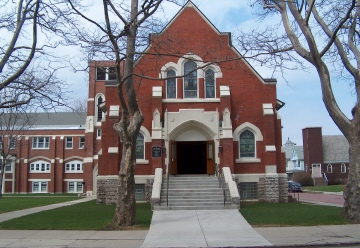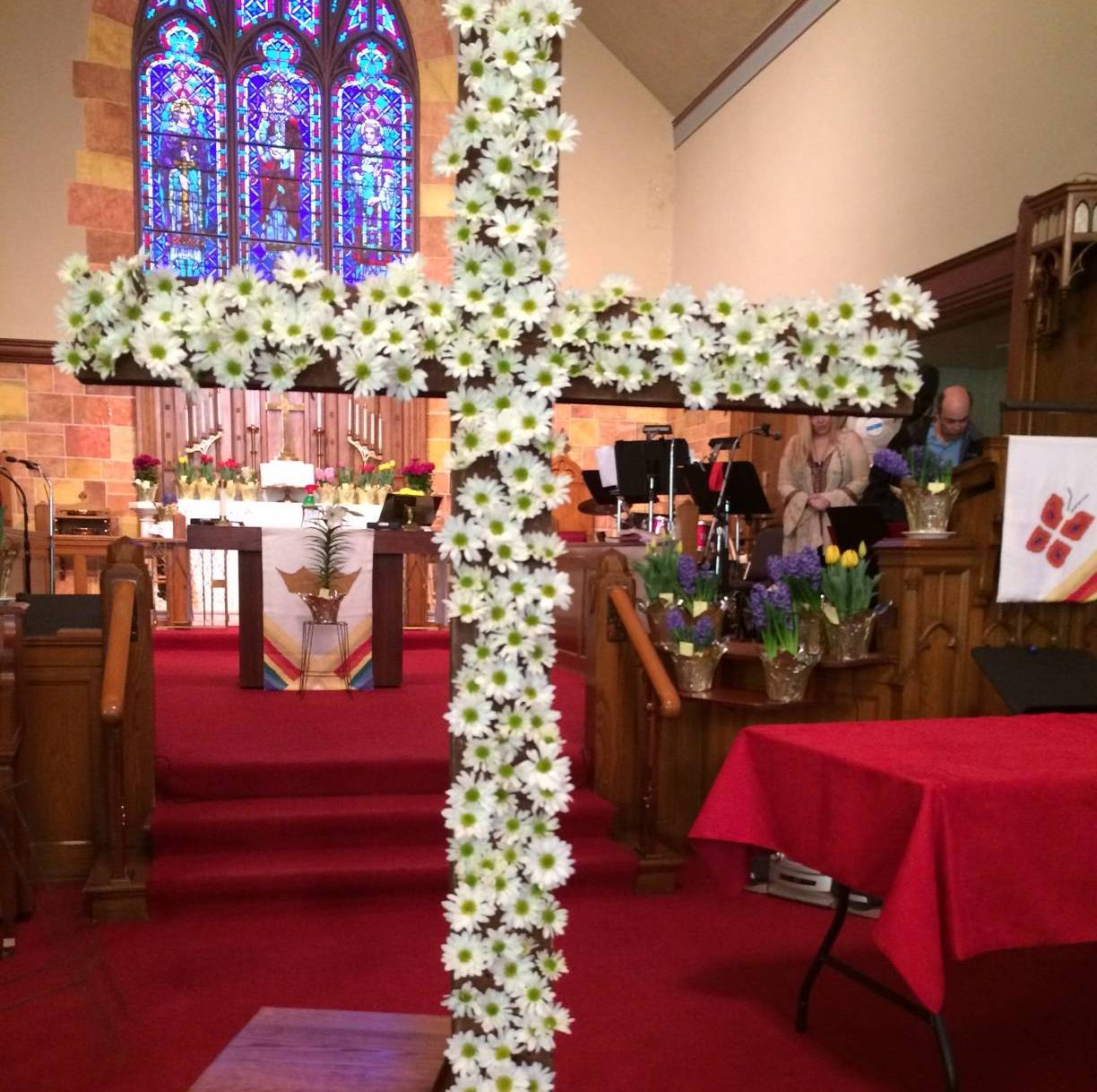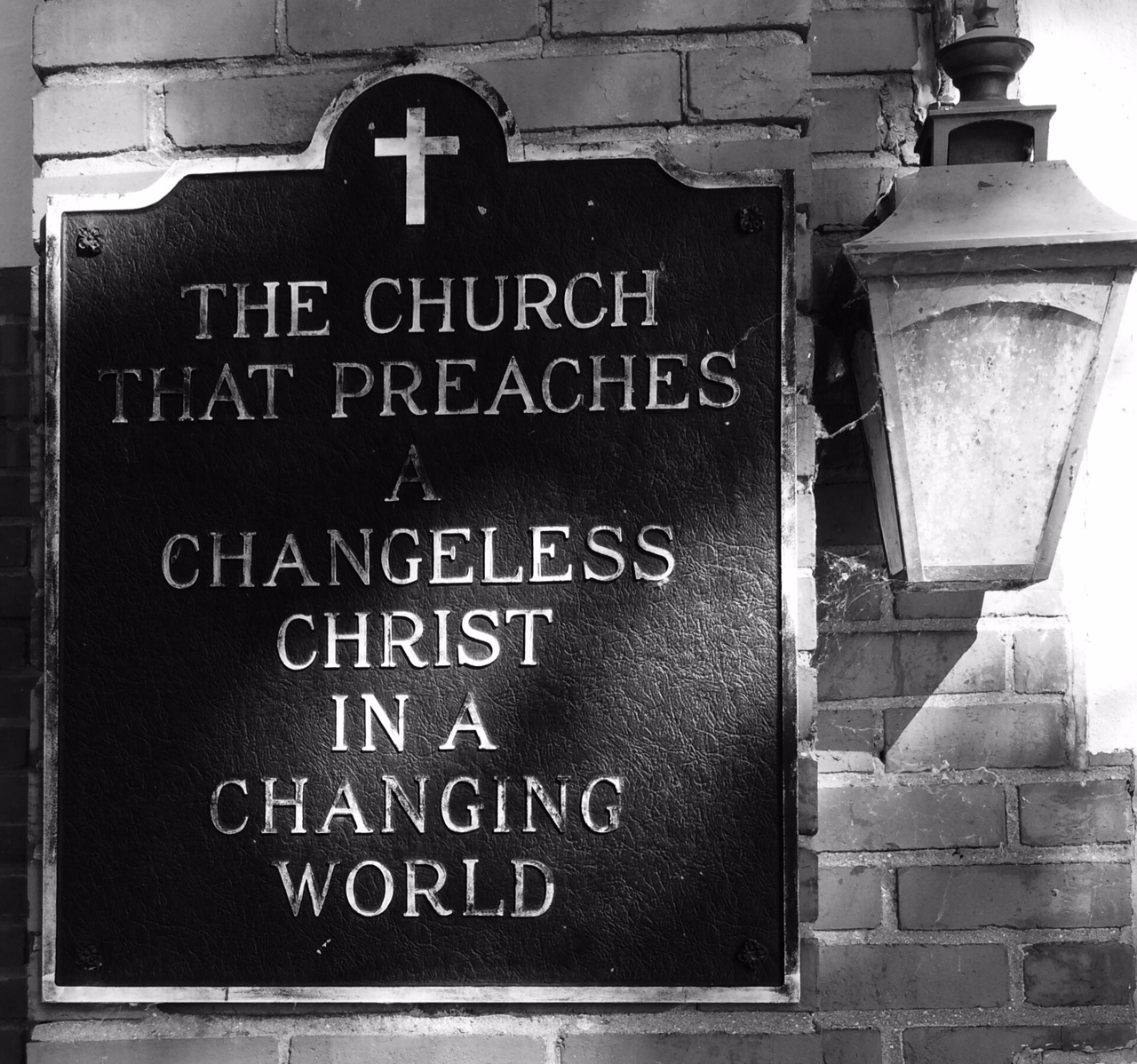Sermons
We give thanks to you, heavenly Father, through Jesus Christ your dear Son, that you have protected us through the night from all harm and danger. We ask that you would also protect us today from sin and all evil, so that our lives and actions may please you. Into your hands we commend ourselves: our bodies, our souls, and all that is ours. Let your holy angel be with us, so that the wicked foe may have no power over us. Amen.
499 years ago, on the eve of All Saints’ Day, October 31, 1517, a young Roman Catholic Priest by the name of Martin Luther nailed on the door of the Castle Church in Wittenberg, Germany, a list of 95 Theses, and requested a meeting of the church leaders to discuss and debate the substance of them.
At the time, Luther had no idea what drastic changes this simple act would bring upon the church, but posting those 95 Theses began a chain reaction that resulted in the events that we know today as the Protestant Reformation.
Lutherans celebrate and observe this last Sunday in October as Reformation Sunday, the birthday of the Lutheran Church. Which is why the RED altar paraments, the color of Pentecost and special church events.
But this year, the celebration takes on a new twist. This year, the Lutheran Church and the Roman Catholic Church have committed to observe the anniversary of the Reformation TOGETHER.
One of the greatest rifts in Christianity — between Catholics and Lutherans — isn't what it used to be.
As a sign of those much-improved relations, Pope Francis is traveling to Sweden, an overwhelmingly Lutheran country, to kick off a year-long commemoration of the Protestant Reformation that split the churches 500 years ago.
Tomorrow, in Lund Sweden, Pope Francis along with, Lutheran World Federation President Bishop Dr. Munib Younan will lead the common prayer service based on the Lutheran-Catholic dialogue report, “From Conflict to Communion”.
In the 16th century, Luther was declared a heretic by the Church of Rome and a price put on his head.
Last June, Pope Francis went so far as to praise Luther as a great reformer. The pope told reporters: "The church was not a role model, there was corruption, there was worldliness, there was greed,
and lust for power. Luther protested against this. And he was an intelligent man."
As Lutherans, we know some information about Luther. What happened on that day 499 years ago when Luther posted the 95 Theses was simply the culmination of a long, personal struggle that had been fermenting within Luther’s soul for several years.
Luther grew up in an age when the church pictured God as an angry, vindictive God. God was believed to be watching over us, anxiously waiting for us to make a mistake so that He could then punish us with eternal suffering in hell.
The existing church taught people to fear God in the worst sense of the word.
And then the church used that fear to control the people, to get them to submit to church leaders and obey all the teachings and rules of the church.
Before I go any further, please know that the Roman Church of Luther’s day, and the Roman Church today are very different.
Over the past 499 years, the Roman Church has gone through its own reformation, so when I talk about the Church of Luther’s day, it is not accurate to compare it to the Roman Catholic Church of today.
There have been many changes and improvements, in both theology and practice.
There are still some issues and theological differences, but in fact, in 1999 on Reformation Day, representatives from the Lutheran and the Catholic churches got together to sign a document on our common understanding of justification by grace, the very thing that so strongly divided us at the time of the Reformation.
As a young man, Luther decided early on that he did not want to spend all of eternity suffering in hell, so he set out to make himself right and pleasing before God:
He earned his Ph.D. in Bible and Theology, and eventually became a professor at the University of Wittenberg in Germany, one of the new and upcoming schools of the Church.
But through all of this, Luther did not find what he wanted the most, – what he longed for and searched for: … peace with God and a sense of assurance and rest for his troubled spirit.
It seemed no matter how hard he tried to be good and obedient to the commands of God and the Church, he discovered it was impossible.
No matter how hard he strived to do everything that a Christian was supposed to do, he realized that he was still a sinner. And since he was taught God punishes sinners, he could only see himself as condemned before God.
In spite of doing everything the Church said a person should do to win the mercy and love and forgiveness of God, for Luther, it was all to no avail. He still saw himself as too much a sinner.
He would spend long hours in the confessional, trying to remember every possible sin. And his frustration grew.
I suppose that Luther was simply more honest with himself than most of us are today. We tend to belittle and minimize our sins, as if they make no difference to God, as if God doesn’t care.
Luther saw his sin for what it really was, that which separated him from God.
Throughout this personal struggle, Luther was not a basket case. On the contrary, he was developing quite a reputation for himself as being one of the budding stars of the Church, an extremely intelligent and gifted person and a great scholar and professor at the university. He was highly regarded and respected.
One day in 1514, as Luther was preparing for a series of lectures on Paul’s letter to the Romans, he was reading and studying chapter 3, our first reading today, a portion of Scripture that he had read many times before.
But this time as he read it, his eyes were opened, the light came on!
As Luther describes it, “It was as though the gates of heaven were opened to me!”
As he read, “But now, apart from law, the righteousness of God has been made known… for all have sinned and fall short of the glory of God, and all are justified freely by God’s grace through the redemption that came by Christ Jesus…. For we maintain that a person is justified by faith apart from the works of the law.”
And, like in our Gospel reading today, Jesus said, “You will know the truth, and the truth will set you free!”
Suddenly Luther saw and then knew the truth of the Gospel, and instantly was set free!
He was set free from trying to make himself worthy and acceptable before God, something he could never achieve for himself, no matter how hard he tried.
He was set free to simply rest in the grace and favor and love of God, grace and forgiveness freely given to us because of what Jesus Christ accomplished for us on the cross. Luther rediscovered the Gospel, the good news of Jesus Christ.
And the truth of that Gospel is: we are not saved, we are not put right with God by:
- being good
- or obeying the law
- or going through all the outward rituals of religion
- or anything else we may try to do to make ourselves worthy before God.
No, we are saved solely by the love and grace of God freely and generously given to us through the death and resurrection of Jesus Christ.
Salvation comes to us as a free gift of God’s grace.
All we need to do is respond to it.
All we need to do is accept that gift in faith.
Faith is simply saying, “Yes, Lord, I believe. Yes, Lord, I receive Your gift of love and forgiveness and acceptance. Thank you, Lord, for loving and forgiving me in Jesus Christ.”
With this new-found discovery of the Gospel, Luther was eager to share it with the world.
Whenever he read Scripture, “Justification by Faith in Jesus” seemed to leap out at him.
The Bible was consistent in its message. God’s promise was real.
He thought that he would find a ready audience among the church leaders, but instead he was met with resistance and persecution.
And so the church leaders branded Luther as a heretic and an outlaw and tried everything they possibly could to suppress his teaching.
He was wanted, dead or alive, and was kidnapped by his friends and taken into hiding in the Wartburg Castle.
The Roman Church was not able to squelch Martin Luther. He was the right man for the right time, empowered by the Holy Spirit, and armed with the truth of the Gospel and the Word of God…… and there is no greater power than that.
His proclamation of the Gospel resulted in the Protestant Reformation and the beginning of the Lutheran Church. And today, we as Lutherans, along with the Church of Rome, celebrate the 499th anniversary of that event..
But sad to say, there are still many Lutherans, as well as many other Christians today, who continue to struggle and wrestle with many of the same doubts and questions as did Luther so many years ago.
What was lacking, what was missing in Luther’s life, and what he discovered in the Scriptures, is the assurance of salvation.
He had found the certainty of the love and grace of God through Jesus Christ, the pure joy and thrill that comes in knowing, “I am a saved, loved, redeemed, child of God!”
Luther discovered the true and radical nature of God’s grace.
And yet today there are many, many Christians who believe that Jesus is the Son of God and that God raised him from death… but still continue to doubt, to wonder if they really are saved, who think that their salvation still depends on how good they are and how closely they obey the law and live by all the rules.
Now, I’m not saying that God doesn’t care how we live. Certainly God desires that we live lives of honesty, integrity, and obedience to God’s will.
But how we live doesn’t save us.
Jesus Christ saves us!
That’s the Good News that sets us free. We are saved by the grace of God through faith and trust in Jesus Christ.
If you get anything from this sermon this morning, I hope it is this, that when you leave church this morning, you will leave with the knowledge and assurance and certainty:
- that God loves you,
- that God has chosen you,
- that by the grace of God through Jesus Christ, you are forgiven and made a child of God,
- that you might leave here truly knowing the joy of your salvation.
Because of Jesus, God has no record nor memory of your sin.
As Martin Luther read the Scriptures, he discovered the Gospel, and, as he put it, the “gates of heaven” opened to him.
As children of God, may we know that same assurance of God’s love and grace, and may heaven be opened for us!
It all depends upon Jesus.
What He did, accomplished it all.
Trust Him completely.
I close with Martin Luther’s evening prayer,
I give thanks to you heavenly Father, through Jesus Christ your dear Son, that you have graciously protected me today. I ask you to forgive me all my sins, where I have done wrong, and graciously to protect me tonight. Into your hands I commend myself: my body, my soul, and all that is mine. Let your holy angel be with me, so that the wicked foe may have no power over me. Amen.








